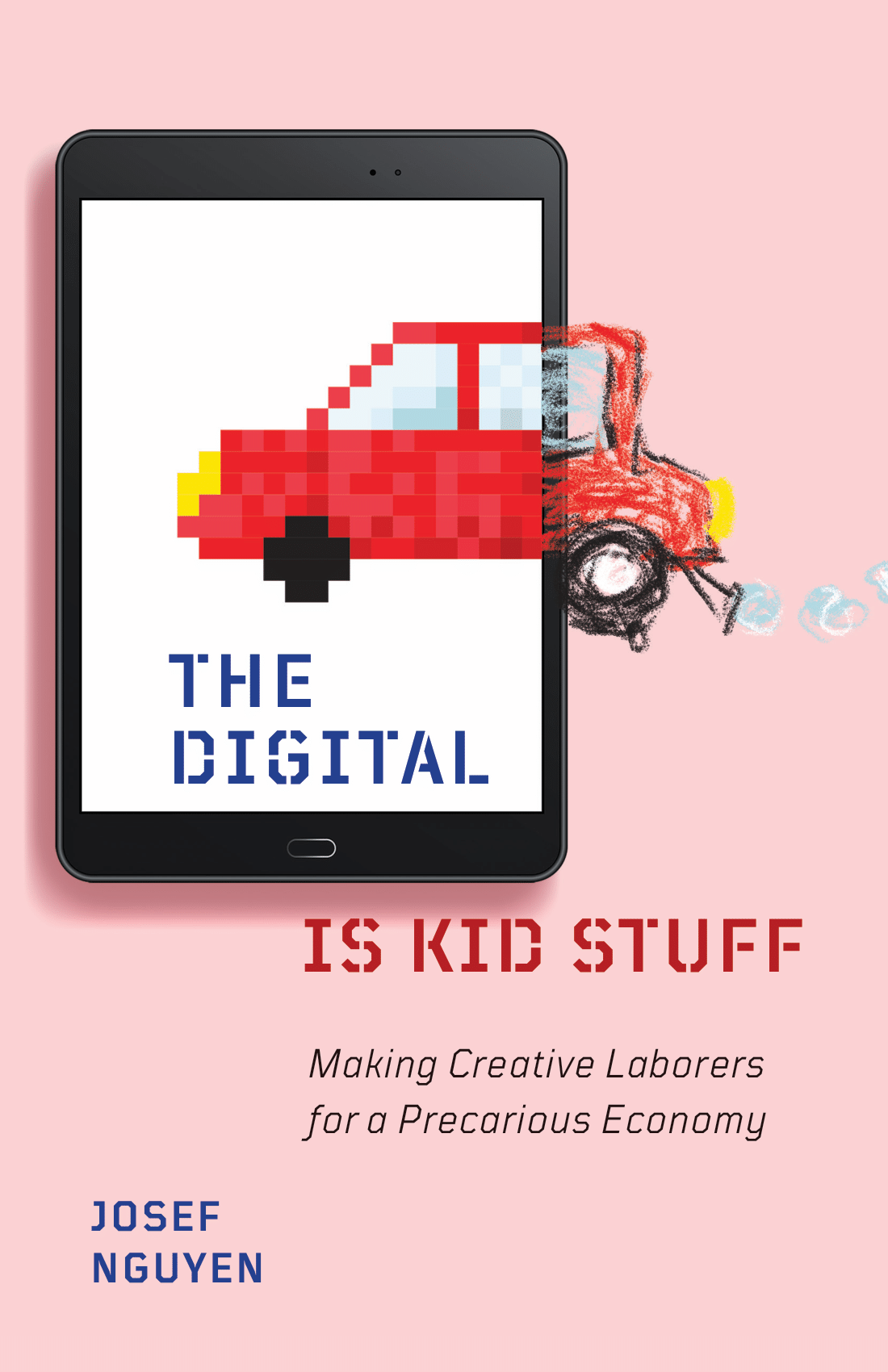About
Josef Nguyen (he/him/his) is an associate professor in the Department of Film, Television, and Media. He is also a faculty affiliate of the Digital Studies Institute as well as a faculty affiliate of the Science, Technology, and Society Program. He received his Ph.D. in English from the University of California, Davis (2016) and his M.S. in Information and Computer Science from the University of California, Irvine (2009). Prior to joining the University of Michigan, he was an associate professor of Critical Media Studies at The University of Texas at Dallas.
His work engages media studies, science and technology studies, and feminist and queer theory to investigate the contested meanings of technological labor and design in digital culture, with particular attention to:
- consent and/as digital technology
- creative labor and the creative economy
- sex, intimacy, and technology
- feminist, queer, and trans gaming
- DIY, craft, and maker cultures
- fan media and fandom practices.

His first book, The Digital Is Kid Stuff: Making Creative Laborers for a Precarious Economy (University of Minnesota Press, December 2021), explores how youth are instrumental to the creative economy not solely as the future labor force but also as cultural sites for mediating the political, economic, and ideological meanings of a precarious creative economy itself. Investigating the digital game Minecraft, Make magazine, the social media platform Instagram, and the speculative technological practice of design fiction, this book argues that U.S. culture negotiates the meanings of emerging digital media technologies and increasing economic precarity under neoliberalism through images of creative digital youth. The Digital Is Kid Stuff received the 2022 First Book Prize from the Cultural Studies Association.
He is writing a new book, tentatively titled Click to Agree: Sex, Software, and the Terms and Conditions of Digital Consent, on the cultural politics of consent in emerging digital technologies—including consent-recording mobile applications, dating simulator games, and sex robots. In this book, he interrogates both ways in which consent is designed into and conceptualized through digital technologies as well as how consent itself operates culturally as a kind of digital technology that shapes and regulates subjects, relations, and desires under dominant systems and ideologies of difference and power. Click to Agree is under advance contract with University of Minnesota Press.
Currently, he is serving as the Production Editor for JCMS: Journal of Cinema and Media Studies until October 2027.
Please visit www.josefnguyen.net for more information.


